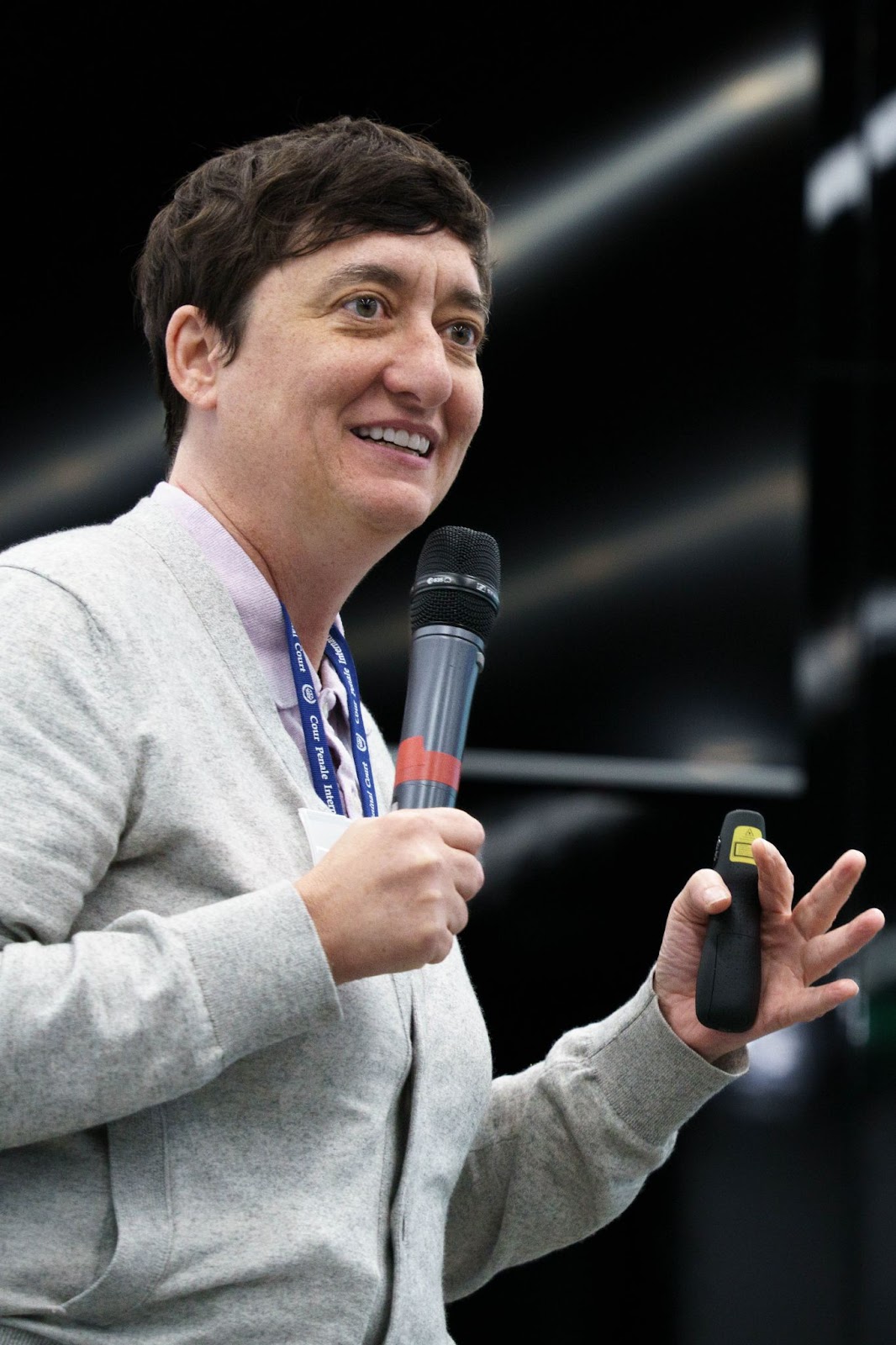International Human Rights Advocate and Alum Lisa Davis to Strengthen Top-Ranking Experiential Learning Program

Lisa Davis, Senior Associate Dean of Clinical Programs
The victories accumulate quietly in CUNY Law’s clinics like well-laid stones: the Creating Law Enforcement Accountability & Responsibility Clinic’s Supreme Court win, the Community & Economic Development Clinic’s induction into the housing rights hall of fame, the Human Rights & Gender Justice Clinic establishing precedent that sexual violence constitutes torture in conflict zones. Lisa Davis keeps a mental catalog of these achievements—not just out of pride, but with the keen eye of someone who understands that justice, like any enduring structure, requires both a foundation and a blueprint for growth.
“Our clinics are constantly making history,” they say, “but the real question is: how do we build on that?”
Davis, professor of law and newly appointed Senior Associate Dean of Clinical Programs, is thinking about architecture. Not the soaring glass and steel of Long Island City, where CUNY Law moved in 2012, but something less tangible and perhaps more vital: the infrastructure that supports CUNY Law’s pioneering clinical program.
“To strengthen the support and foundation for all of our incredible clinics—that’s what excites me,” Davis says. “Every clinic here is a gold star. Being able to help build the scaffolding that lets them continue their innovative, cutting-edge work… who wouldn’t want to be part of that?”
This focus on strengthening systems while staying grounded in service feels natural coming from Davis, who brings years of experience in both clinical teaching and institution building to their new role as Clinical Dean. Since 2010, they’ve co-directed the Human Rights and Gender Justice Clinic, where students work at the intersection of grassroots activism and international law—partnering with community organizations, advising UN bodies, supporting cases before international courts, and collaborating with transitional justice mechanisms to advance justice across borders and barriers.
This interplay between local impact and global change has been a constant in Davis’s work. Recently appointed as Special Adviser on Gender and Other Discriminatory Crimes at the International Criminal Court, they bring a deeply nuanced understanding of how systems of oppression intersect—and how institutions must evolve to address this complexity. This new role, which expanded in December 2023 from their previous position as Special Adviser on Gender Persecution, reflects their success in helping the Court develop tools for understanding gender-based crimes in conflict zones.
“To truly dismantle systems of oppression, we have to understand how they intertwine,” Davis explains. “Black and Indigenous women who experienced violence during Colombia’s conflict were often targeted not just for being women, but also because they were Black or Indigenous. Understanding these intersections is crucial to building effective responses.” It’s this understanding of how institutional structures can either perpetuate or combat injustice that informs their vision for CUNY Law’s clinical program.
“What makes CUNY’s clinical program special is that clinic isn’t a privilege here—it’s a right,” Davis explains, leaning forward intently. “At most schools, doing clinic means you can’t do something else, or more often, you just don’t get to do clinic at all. But this is how we get to practice our values of professionalism and sensitivity and cross-cultural awareness. It’s how you learn to articulate real-life arguments that make a difference in clients’ lives.”
The proof of this approach shows in where graduates land and in the growing list of organizations seeking out students with the kind of training one can only receive at CUNY Law. “Social justice organizations want our students because of the experience that they have, and because of the values that we teach—we provide a guided experience you can’t find anywhere else: at CUNY, students get to do clinic either full-time or for a full year.”
But Davis sees opportunities to amplify this impact further. “Sometimes we’re so busy working that we go from one project to the next without stopping to share our victories,” they reflect. “Highlighting those moments, helping to demonstrate to partner organizations, funders, and the broader public the work our clinics do—that’s important. Not just for us, and the people we work alongside, but for prospective students who should know about these opportunities.”
This vision of expanding awareness while deepening support comes at a crucial moment for legal education. As law schools nationwide reassess their approaches to experiential learning, CUNY Law’s clinical program stands out not just for its top ranking, but for its breadth of offerings. Students can choose between live-client clinics where they represent real people in court and practice clinics offering valuable externship experiences.
“Students represent a range of clients in court from persons who have been trafficked to those denied access to reproductive justice,” Davis says. “Having that kind of guided experience is what helps transform students into social justice lawyers. You can’t learn everything about being a lawyer in a book.”
What clearly animates Davis most is the opportunity to serve an institution and mission they deeply believe in. “It’s not about me,” they insist. “It’s about being able to support clinics that are consistently making a difference in people’s lives. This isn’t a little house we’re building—it’s a skyscraper in terms of impact. Being able to strengthen that foundation? That’s what matters.”
